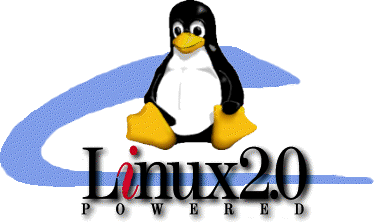
 Why I use Linux
Why I use Linux
Note: what follows was written six years ago, and is quit out of dat now, but since I've no time to rewrite it, if you're going to read it anyway keep in mind that a lot has changed in the meanwhile.
Some history
First of all it's probably better if I explain to you "what" GNU/Linux is, just in case you never heard about it. Linux is a 32-bit operating system (but there's support for 64-bit processors too) wich runs on a wide variety of platform, from Intel to Amiga (someone has been able to run it even on palm-top devices). It is a Unix-clone, and the kernel developement was originally started by Linus Torvald as an improvement/substitute to the Minix (the main unix-clone for Intel processor available then), when he was a student in Finland (today he works for an hardware company in the U.S.A., Transmeta).
He discussed his first attempt on writing the os in a newsgroup, asking for people to join the project, and after some time this resulted in the birth of a kind of programmer's network working on it with Torvald. Then it was only a matter of time for the 1.0 kernel to be released.
But the kernel wasn't enough. It needed commands, utilities and applications to
be something more than an useless toy. Luckily the FSF (Free Software Foundation, founded by R.F.Stallman) was working in the same direction to build a Unix like operating system to be released under the copy-left licence (best known as GPL), a project called GNU (GNU is Not Unix). They had commands, they had utilities, they had apps... but they hadn't a working kernel (the kernel, wich is called Hurd, is now on beta stage). GNU and Linux met, and a new powerful os was born: GNU/Linux.
The os started soon to gain popularity among the computer community, either for its stability and for the open availability of the source code. A lot of volunteer developers added their efforts to give more and more functionality to Linux, and the number of applications available for it, either GPL or commercial, has being growing fast.
As today Linux kernel as reached the release 2.2, and 2.4 is going to be released soon (2.3 is an unstable sperimental release). Linus Torvald, who wrote the roots of the kernel, is still on head of the development, mainly coordinating and supervising the work.
Linux is distributed under the Gnu Pubblic License, thus meaning it is free and must be always furnished with the source file. There are a lot of distribution, as Slackware, Debian, Red Hat, SuSe.
A distribution is an ensamble of the kernel plus other software with an installation utility. The kind of installation and the software bundled may differs widely from one to another. Some of them are free, some not. However, if and when you have something to pay, you are paying the phisical support of the software (nowaday mainly cd-rom's) and the work that the vendor added to the os (like the installation utility). Thus meaning that, wathever flavour you choose, you'll anyway going to spend less than for anyother os.
What can you do with it
As I said above, GNU/Linux is a 32-bit operating system running on most of the available platform. It has low hardware requirement (it works even on old 386's), and is one of the stablest os on the market (I still have to see it crash).
It is the first-choice os (even if free-BSD has a stronger security) if you have to set up an intra/internet server, supporting most of the protocols and file system and offering powerful apps like the Apache web server.
It is useful to give a new life to your old 386 or 486, maybe to use it as a fast internet client.
And is going to be a good workstation os too, considering the latest fast improvements with the GUI (here is how my desktop looked running the KDE, while this is my laptop's desktop with BlackBox) and the developement of office suite like the StarOffice, or apps like Linux Word Perfect. And, yes, if you were going to ask, there are a lot of games too.
Why I use Linux
I installed Linux because I was quite tired of the wasted time on Win 95 crashes. The first impact was rude, I downloaded a Slackware distribution from the net and made a mess trying to set it up without reading the documentation. But after few time I acquired a basic knowledge of the system, becoming able to have it up accordingly to my needs.
I must admit I falled in love with the cleareness and stability of it. After my trouble with Win, here was an operating system wich did "only" what I decided it had to do, wich was so higly configurable to be even a little scaring, wich never crashed, wich libraries were clearly organized. A relief, really.
What bothered me was the faulting of user friendly office application, and of a really good GUI environment. So I had both Linux and Win 95 installed on my pc.
But with time things went better: new GUI environment (Gnome and KDE); new office apps (like the Maxwell word processor or the Gimp). And mounth after mounth I had to boot Win less and lesser, 'till I finally uninstalled nearly all from it and keep it only for the few games I wasn't able to launch in Linux using the Wine.
My set up
Just for the few of you who are interested on it, here is the set up of my machines:
- Desktop: a 133 Pentium, 32M Ram, 1M Video Ram, 1.2G HD, CD-Rom 8x, 56K v90
modem, running Debian GNU/Linux 2.1, kernel 2.2.13, with Window Maker on X-Window.
- Laptop: a 486/D4, 8M Ram, 512K Video Ram, 600M HD, 36,6k modem, running Debian GNU/Linux 2.1, kernel 2.2.13, with BlackBox on X-Window.
Ending
In my experience and opinion Linux is, nowaday, the fastest and stablest os available in the market for Intel platform. It has gained the support of big companies like Netscape, Corel, Intel. Its vendors are offering tech support and easy installation (check at Caldera or at Red Hat, e.g.). Its user's base is growing very fast (from 500.000 to 4 millions only during '98).
Linux is hot: check it!
(If you want to know more about GNU/Linux, check my links page for some useful site)

©2005 by Seipse.





